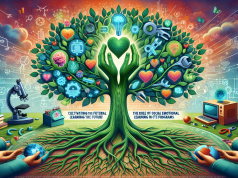Mentoring: The Catalyst for Employee Upskilling in the Modern Workforce
As we celebrate National Mentoring Month, it is an opportune time for HR professionals to re-evaluate the impactful role mentoring can play in both up-skilling and re-skilling employees. In the age of rapid technological advancements and shifting market demands, the workforce is required to be more agile and adaptive than ever before. Mentoring, long regarded as a tool for personal and professional development, now stands as a crucial pillar in the upskilling narrative.
The Changing Landscape of Skills
The pace of change in todays world is unprecedented. Roles are evolving, demanding new competencies that did not exist a decade ago. A study by the World Economic Forum suggests that more than half of all employees will need significant reskilling by 2025. In this landscape, mentoring offers a continuous, dynamic method of upskilling that directly answers the demands of the modern workplace.
Mentoring as a Strategic HR Tool
For HR professionals, mentoring is not merely a means to an end; it is a strategic tool that can energize the entire talent management ecosystem. By pairing less experienced employees with seasoned veterans, organizations can facilitate knowledge transfer, cultivate leadership skills, and foster a culture of continuous learning.
Moreover, mentoring contributes to employee engagement and retention. When employees feel supported in their development, they are more likely to remain loyal to their organization. Mentoring creates a sense of community and belonging, enhancing the employee experience and satisfaction.
Realizing the Upskilling Potential Through Mentoring
Implementing mentorship programs with a focus on upskilling requires intentional planning and commitment. It starts with identifying skill gaps and understanding future industry needs. HR departments can tailor mentoring programs to address these gaps, setting clear goals and outcomes for mentees.
Creative approaches to mentoring, such as reverse mentoring, where junior employees mentor senior staff, can also yield rich learning experiences. This bidirectional knowledge flow allows for a more comprehensive understanding of emerging technologies and generational perspectives.
Fostering a Culture of Lifelong Learning
A successful mentoring program is deeply intertwined with an organizational culture that values lifelong learning. It encourages a growth mindset across all levels of the workforce. By celebrating small milestones and sharing successes, organizations can motivate employees to pursue continuous learning actively.
Celebrating National Mentoring Month is more than just recognizing the role of mentors. It is about acknowledging the power of mentorship to transform a workforce, enabling it to meet the challenges of today and tomorrow with resilience and innovation.
Conclusion: The Future of Work Is Here
As HR professionals, let us embrace mentoring as a critical component of our upskilling strategies. By doing so, we not only prepare our workforce for the future but also contribute to building workplaces that are inclusive, dynamic, and prepared for whatever comes next. The future of work is here, and mentoring is indeed our catalyst for navigating it successfully.
This National Mentoring Month, let’s commit to leveraging the full potential of mentoring in our quest for upskilling excellence. Let us harness its power to inspire, educate, and empower our employees.




























